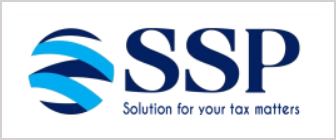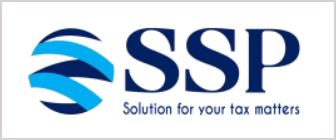The twentieth century was characterized by rapidly advanced technological development. Digital acceleration pervades various aspects of human life. One of those various aspects is payment methods. In this modern era, people have many alternatives for making transaction payments. One of the alternative payment methods is using an e-wallet or any payment related to the transaction of Financial Technology (fintech), such as P2P, commonly known today as Paylater.
The number of fintech players in Indonesia increased in a decade, increasing from only several players to big players in 2024. While the first wave of growth was dominated by the payment segment, the vibrant modern ecosystem is a diverse landscape driven by lending and payments such as e-wallets. An e-wallet is an electronic service for storing data on payment instruments, including card payments and electronic money, as an instrument to accommodate funds to make various types of payments.
The shift in payment methods with e-wallets and using fintech is not without reason. One of the advantages of P2P and e-wallets is the promotional programs offered. Promotional programs offered are usually in the form of cashback, free vouchers, and discounts that are offered by e-wallets or P2P. Cashback is a marketing technique that is commonly applied in various e-commerce to attract buyers and becomes favorable since it gives rewards in the form of money where the change can be converted into money, points, vouchers, etc. By comparing the definition, scheme, and the amount of cashback recorded by only these three e-commerce, e-wallet, and P2P companies, only with simple logic can we illustrate how massive the value of cashback circulating in the community or customers as recipients of the cashback itself could be.
Related to the scheme of granting, cashback is received directly by customers as a reward or appreciation by e-wallet providers for their payment while they are using the payment method using some of the scheme transactions on the platforms to the merchant. The recipients can use the cashback to make payments for other transactions. There is some joint marketing between the platform and the merchant that gives the cashback or points to the customer or user so that the amount can be used by the other transaction. Therefore, in this scenario, there are 3 parties involved: customer/user, merchant, and e-wallet/P2P provider.
Now the discussion is, can the cashback received be considered as income in relation to the object of Income Tax? Indonesian tax regulations define income as any additional economic capacity received or obtained by a taxpayer, whether originating from Indonesia or outside Indonesia, which can be used for consumption or to increase the wealth of the taxpayer concerned, by name and in any form. However, based on the definition of income above, it was possible for tax offices to use it as a guide related to the imposition of income tax. As the characteristics of income based on Income Tax Law are specifically:
1) can be used for consumption.
2) increase the wealth of the taxpayer concerned; and
3) by name and in any form. The definition of income is explained in the regulation at the level of law (Income Tax Law).
If referred to the regulations, the transaction of cashback is possible to use as consumption, but it will not increase any wealth of the taxpayer; instead, it will deduct the wealth of the taxpayer as used by the taxpayer for consumption. Currently, there are no other taxation regulations that regulate the specific mechanism and implementation of revenue that can cover the definition of cashback itself or taxation related to this; therefore, this is certainly a barrier to taxing by the government to cashback.
The current situation is only a mechanism for imposing income tax on rebates that can only be linked to SE-24/2018 and PER-11/2015. The SE-24/2018 explains that any rewards received by the buyer from the Seller can be categorized as rewards if certain conditions have been met. However, this regulation is only specific to the definition of the buyer, which is only Distributor, Retailer and Agent. Therefore, certain conditions that occur in a sale and purchase transaction are circumstances or events that can result in the provision of rewards from the Seller to the Buyer in connection with the sale and purchase transaction based on written and/or unwritten agreements that can’t be applied other than the reward giving from the seller to distributors, retailers, and agents (buyers) as the subject of Income Tax itself is not fulfilled. Therefore, even in the condition of certain conditions referred to, this meets the criteria that include: a) Achievement of certain conditions; b) Provision of certain space and/or equipment; c) Receipt of compensation received in connection with the sale and purchase transaction. These regulations can’t apply if the buyer is not a distributor, agent, or retailer. Thus, the scope of SE-24/2018 is limited to buying and selling activities between sellers and buyers, where the definition of sellers explained in this rule is a party that sells its products to buyers, including distributors, retailers, and agents. Therefore, based on this, SE-24/2018 has not fulfilled the criteria for the imposition of Income Tax on cashback because cashback is compensation received by the user/customer.
The other regulation that might be referred to is DGT regulation PER-11/2015, the regulation explains the four types of prizes. The prizes are described as a lottery, competitions, specific activities, and awards. This regulation states that these types of prizes are income tax objects that require the gift giver as an income tax withholder (withholding tax system). There is no further explanation about specific activity mentioned in PER-11/2015, there are only definitions about it. In addition, there is also no further explanation in regards to the definition of activity, DGT may consider promotion in the form of cashback as a certain activity because generally there is a condition that cashback can only be obtained in a certain period and has other conditions such as limited to transactions at certain merchants, with a certain transaction nominal, or with a limit on the cashback value that can be received (50% or maximum of Rp 10.000). Promotion in the form of this transaction might be possible and can be considered as a certain activity because there are criteria in the form of a promotion period. However, there are exceptions to the income tax imposition mechanism stipulated in PER-11/2015, as the income tax withholding does not apply to direct gifts in the sale of goods or services if they are given to all buyers or end consumers without a draw and the gift is received directly by the end consumer at the time of purchase of goods or services. Therefore, if referring to these regulations, Income Tax is not applicable as the promotion is given to all of the customers, and there will be no withholding tax supposed to be applied in this transaction.
The phenomenon of the rapid growth of the cashback might be in line with the potential of the state revenue because the economic value of cashback might be possible to reach trillions of rupiah. The government is possible to make concrete rules as a legal basis that can accommodate the mechanism of income tax imposition on this transaction if looking for revenue. Even in principle of taxation for taxpayers, the current situation is not fulfilled by the criteria. The imposition mechanism is regulated in such a way as to provide clear and accurate boundaries related to definitions, procedures, schemes, examples, rates, etc. In relation to the principle of taxation, taxpayer compliance and convenience.
However, other than the current tax regulation above and the possibility of the new regulation that might be implied by the government, that might be applied tax on cashback. In the view of the user/customer, this might be an additional burden to the customer as a taxpayer if the regulations are applicable, as it becomes an additional cost and might possibly make the individual Income Tax for the cashback user become an underpayment or overpayment.
Author: Aaron Gunanta Barus, Rendi Risandy Febriansyah


